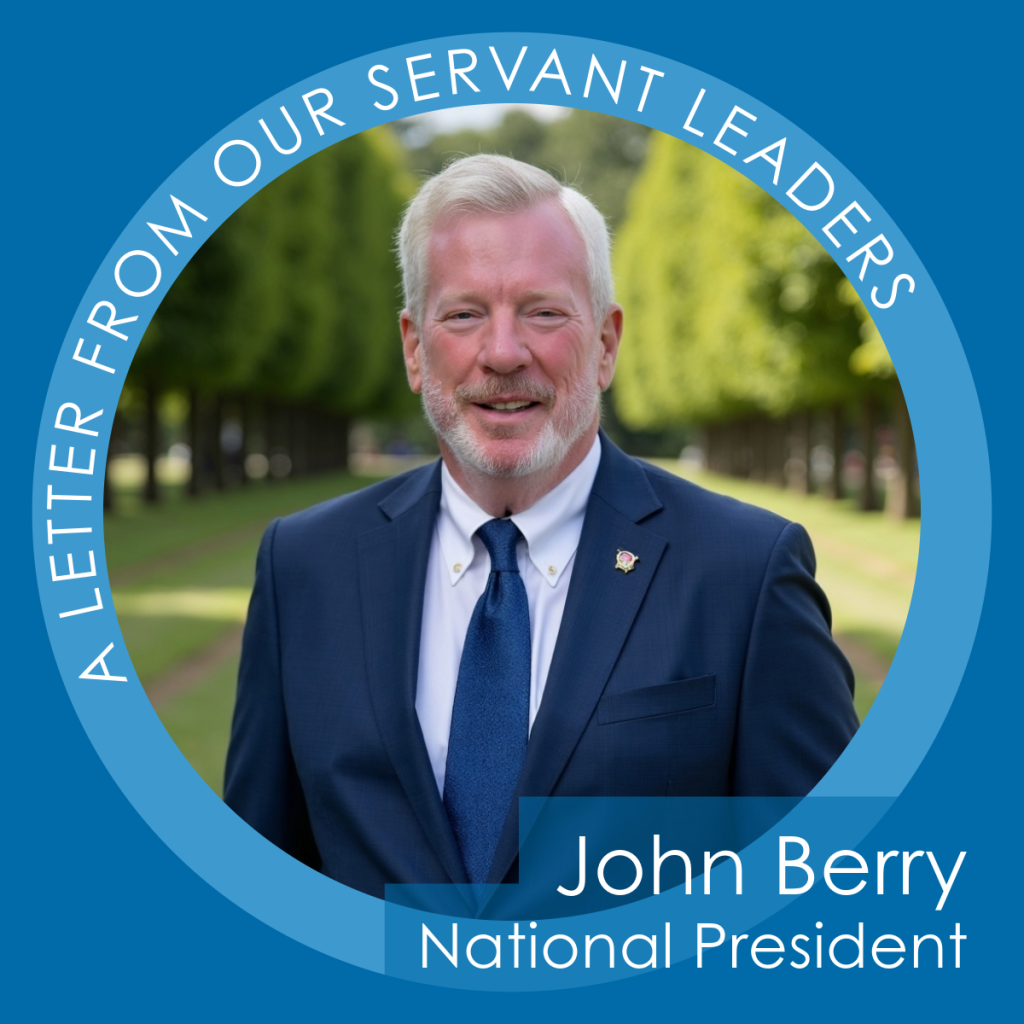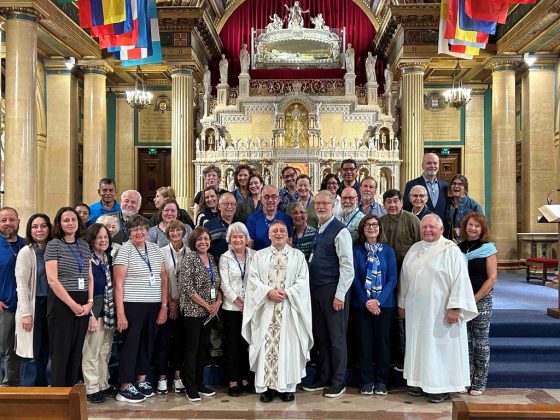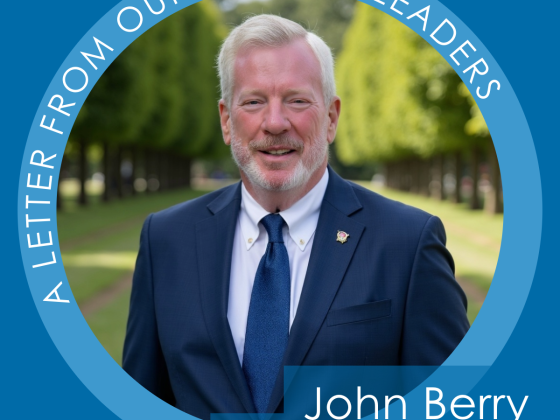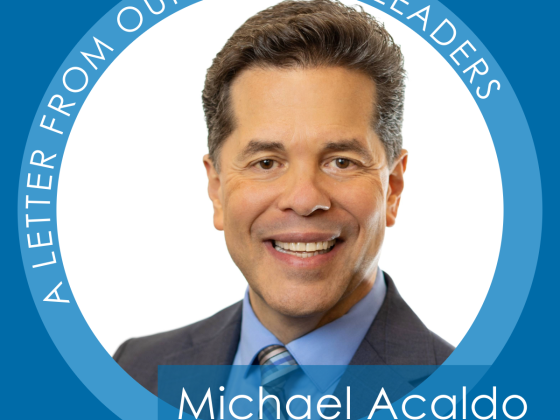
Who do You Say that I Am? The unbreakable bond between faith and service
In this past weekend’s Gospel reading we hear Jesus ask Peter and the other Apostles the question “Who do you say that I am?” My Pastor, and I’m sure many of yours, used this Gospel reading, and this question in particular, in his homily last Sunday as an opportunity to encourage us to explore our personal relationship with Jesus and to ask ourselves who do we say that He is to us in our lives?
That question Jesus posed to his disciples has resonated across centuries, demanding a response not just from Peter but from all of us who claim to be followers of Christ. Today, this question is still the mirror that lets us reflect on our relationship with Jesus. For many of us, especially we Vincentians, that relationship finds its most powerful and meaningful expression not in abstract theological belief, but in tangible advocacy for, and solidarity with, the poor. We have come to understand (and thus to answer that question for ourselves) that to believe in Jesus as Lord while ignoring the marginalized is to offer an incomplete answer, a contradiction that severs faith from its purpose.
In the Gospel, Peter declares, “You are the Messiah, the Son of the living God” (Matthew 16:16). That was a profound statement of faith and understanding, not merely for its words but for its implications. Jesus’ identity as the Messiah was inseparable from his mission: to “preach good news to the poor, freedom for the prisoners, recovery of sight for the blind” (Luke 4:18). The early Church understood this, that turning faith into action made us who we were! James minced no words: “Faith by itself, if it is not accompanied by action, is dead” (James 2:17). Everyone who has answered Jesus’ question throughout the ages has thus declare allegiance to a Savior who himself became poor and who judges nations by their treatment of the “least of these” (Matthew 25:40). Our faith is hollow if it does not propel us toward the margins.
Vincentians know and believe service to the poor is non-negotiable. Jesus’ ministry was a relentless confrontation with systems of exclusion. A battle against injustice and mistreatment of the marginalized. Jesus embraced lepers, he dined with tax collectors, and he championed Samaritans, all acts that scandalized the social norms of the day! Let us be real folks, Jesus today would be considered a radical, a revolutionary, a socialist, a ‘left wing’ crazy. His teaching today would translate to dismantling structures that perpetuate poverty: they would mean a fight against unjust wages; they would be a cry of agony about the lack of adequate healthcare for the poor and the attempt to slash it even further to fund tax cuts for those who probably really don’t need them. Jesus would cry about the fact that, just like his Mother at the time of his birth, people cannot find a place to live because of the housing crises in our nation. And Jesus would ask why we treat refugees who are trying to escape tyranny and terror in their native lands so poorly when God provided the model of compassion and care for the refugee when he saved Israel from the Egyptians in the Old Testament?
Jesus taught us advocacy and justice. He taught us that they are INSEPARABLE! We know and understand Advocacy is not charity; it is justice at work, echoing the prophets: “Learn to do right; seek justice. Defend the oppressed” (Isaiah 1:17). When we advocate for the poor, for legislation that protects the most vulnerable, for fair immigration policies, for ethical labor practices, or for climate justice, we embody the command to “loose the chains of injustice” (Isaiah 58:6).
Effective advocacy balances both global action with local action. Hence, our support for others across the globe through our Twinning and Global Relief efforts. Our support for a well project in Kenya, our relief programs in Lebanon and Palestine, succeed not by bringing material support but by partnering with local SVdP Councils and Conferences, allowing them to support the needs in their communities.
Our work with the poor is sacramental, our real and tangible encounter with Christ. Mother Teresa called the poorest of the poor she worked with “Christ in distressing disguise,” and Dorothy Day saw the soup kitchen as an altar. When we feed the hungry, we partake in the Eucharist’s deeper truth: Christ broken for the broken. This work transforms us. In the face of suffering, our tidy theological boxes collapse, revealing a God who dwells in scars. As we wash feet, we rediscover Jesus’ question: “Do you understand what I have done for you?” (John 13:12). Service is where faith sheds theory and puts on flesh.
A relationship with Jesus that avoids the poor is a half-truth. The theologian Bonhoeffer warned against “cheap grace,” grace without discipleship. To call Jesus “Lord” while ignoring Lazarus at our gate (Luke 16:19–31) is spiritual hypocrisy. The truth of our bond with Christ is known in the reality of compassion: “If anyone has material possessions and sees a brother or sister in need but has no pity on them, how can the love of God be in that person?” (1 John 3:17).
Today, as Jesus asks, “Who do you say that I am?” our answer must not be on our lips but in homes restored, stomachs filled, and chains broken. Only then does our confession become real, a lived gospel where faith and justice embrace.
The Prayer of St. Francis of Assisi opens with such perfect words, “Lord, make me an instrument of your peace.” But we can also add another line, “Lord, make me an instrument of your justice.”
Let us ask God’s help to continue to strengthen us as we understand and acknowledge those places and times where maybe we have reduced faith to words, and to reignite in us the fire that burns for the poor.
And thus, may our answer to “Who do you say that I am?” be in actions inspired by faith and of love.
Peace and God’s blessings,
John




If you persist in conflating SVDPs charitable mission with your political views (Jesus was left wing, climate justice, etc) many Vincentians will resign and serve elsewhere. You will also lose donations. It feels like a conscious choice on you part.